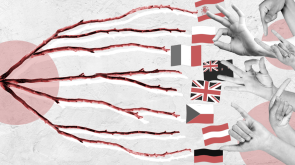
Take part, in one click, in the progress of research in cognitive science!
The Expesciences platform was created by the Relais d'Information sur les Sciences de la Cognition (UMS CNRS) to facilitate the connection between researchers in cognitive science and volunteers wishing to participate in their experiments. Expescience has already registered more than 9000 people throughout France. Come and take part in the experiments conducted at the DEC and in other laboratories in France!
How does it work?
Expesciences allows researchers to advertise nationally the recruitment of volunteers to participate in a cognitive science experiment and for volunteers from all over France to apply. Posting an ad or applying for a job is just a click away on the Expescience website. Once registered, the volunteer receives proposals for experiments in his/her city or online.
What kind of experiments?
These non-invasive experiments are risk-free and can be carried out online or in a laboratory. They can be questionnaires, for example, to find out about your habits, to test your reflexes, choices or emotions when confronted with images, sounds or videos, or even laboratory experiments involving brain imaging (MRI), recording your heart, brain or muscle signals using simple sensors placed on your skin. You can find more examples of experiments here.
The goal
Participating in these exciting experiments allows you to learn more about research in cognitive science while helping researchers to better understand normal brain mechanisms (visual or auditory perception, reading, calculation, memory) and their disturbances in certain pathologies (neurodegenerative diseases, Alzheimer's disease, Parkinson's disease, brain tumours, strokes). Understanding these mechanisms is a real scientific and therapeutic challenge.
PTo register, click here ! All you have to do is give your name, your email address and your place of residence in order to receive announcements of experiences online and around your home.
A unique platform in France
Camille Straboni, lab manager at the DEC, insists on the unique character of this tool in France. "There are general recruitment platforms for online tasks (such as mTurk or Prolific) or for clinical trials worldwide, such as Clinicaltrials.gov. But for cognitive science research involving the recruitment of volunteers online as well as in the laboratory, the Expesciences platform is unique in France. Many research institutes throughout France use this service".
The young lab manager adds that before Expescience existed, the department's laboratories used their own recruitment channels, publishing their advertisements locally to students, acquaintances, by word of mouth and thus constituting their own directory. "This meant that the database had to be updated regularly in order to renew it and not to test the same people over and over again! A national database such as Expesciences, which ultimately corresponds to a directory of almost 10,000 people from all over France, enables a very diverse panel of people to be brought together. It is therefore a wonderful tool that facilitates the recruitment of volunteers with varied profiles in our discipline."
At the DEC, as elsewhere, the pandemic has significantly reduced the number of laboratory experiments. "But we have adapted," says Camille. "To do this, we have provided the department with numerous remote experimentation tools and online experiments have multiplied. Tools that we use in the laboratory such as eyetracking are being developed on online platforms such as Labvanced," she adds. "For experiments that can be maintained in the lab, we follow a strict health protocol so that no one is put at risk."
MORE INFORMATION




